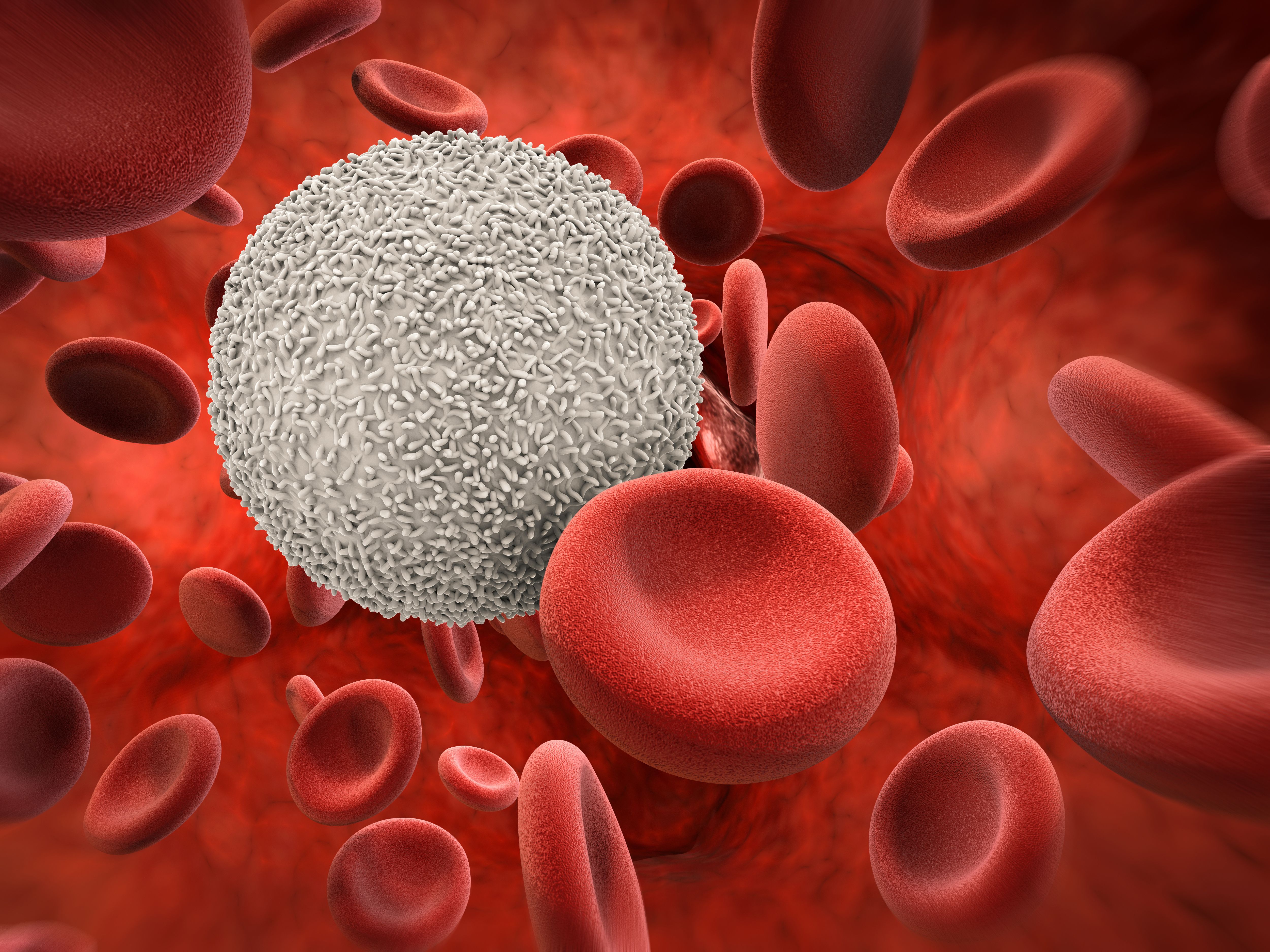Low-Dose Lenalidomide Lowers Risk of Transfusion Dependency, Provides Other Benefits in Myelodysplastic Syndrome
The SINTRA-REV trial showed lower risk of transfusion dependency in patients with MDS treated with lenalidomide.

Final analysis of the phase 3, double-blind, randomized SINTRA-REV trial (NCT01243476) that evaluated lenalidomide (Revlimid) at low doses showed significant clinical benefit in patients with low-risk myelodysplastic syndrome (MDS). These included prolonged time to, and decreased risk of, transfusion dependency (TD), high erythroid and cytogenic responses, an acceptable safety profile, and no progression or clonal evolution, even in patients with TP53 mutations. Findings were presented during the 2022 American Society of Hematology (ASH) Annual Meeting.1
In the trial (N = 61), 23 patients (38.3%) demonstrated TD, with 10 patients receiving treatment and 13 receiving placebo. Overall, after a median follow-up of 5.05 years, low-dose lenalidomide reduced the risk of TD by 69.8% (HR, 0.302; 95% CI, 0.132-0.692; P = .005).
“The median time to transfusion dependency was not reached for patients who received lenalidomide compared with 11.6 months in patients who received placebo,” study presenter Maria Diez-Campelo, MD, PhD, a consultant physician at the Fundación Instituto de Estudios de Ciencias de la Salud de Castilla y Leon, Institute of Biomedical Research of Salamanca, University Hospital, Spain, said during a presentation of the data.
SINTRA-REV randomized 60 patients 2:1 to receive lenalidomide at 5 mg a day (n = 40) on days 1 to 28 of every 28-day cycle vs placebo at 5 mg a day (n = 20) with the same dose frequency. The primary objective was to determine if lenalidomide delays disease progression in non-TD patients with low-risk MDS harboring a 5q deletion (del[5q]). Secondary objectives included erythroid and cytogenetic response, safety, and tolerability.
Regarding erythroid response, patients in the treatment arm demonstrated a 77.8% response (28 out of 36) vs 0% in the placebo arm. Looking at the cytogenetic response, patients in the treatment arm had a response of 94.1% (32 out of 34) vs 0% in the placebo arm; 87.5% of patients had a complete response and 12.5% had a partial response.
Patient characteristics were similar across the treatment and placebo arms. The majority of patients were women, who comprised 80% of the treatment arm vs 85.7% of the placebo arm, respectively. Bone marrow blasts were 1.5% vs 2%, respectively, and the absolute neutrophil count was 2.1 × 109/L vs 2.2 × 109/L, respectively.
Reviewing patient disposition, results favored the treatment arm. “The median time on treatment was double for the patients in the lenalidomide arm compared with the placebo arm, 95.9% vs 42.7%, respectively” Diez-Campelo said. Diez-Campelo noted that treatment completion was 47.5% in the treatment arm vs 33.3% in the placebo arm.
Regarding safety, low doses of lenalidomide were determined to be safe and well tolerated, but adverse events (AEs) were higher compared with placebo. Non-hematologic AEs were mostly grade 1/2. Reviewing hematologic AEs, grade 1/2 neutropenia in the treatment arm was 15.8% vs 14.3% in the placebo arm. In the treatment arm, grade 3/4 neutropenia was 44.7% vs 4.8% in the placebo arm. The investigators determined that lenalidomide did not induce clinically relevant neutropenia.
After a median follow-up of 5 years, investigators noted similar median overall survival rates: 37.5% in the treatment arm vs 38.1% in the placebo arm.
“Importantly, we have no concerns about acute myeloid leukemia evolution. We saw 11 patients progress, with 6 patients in the treatment arm and 5 patients in the placebo arm,” Diez-Campelo said. Notably, 2 of 6 patients in the treatment arm had a TP53 mutation compared with 1 patient in the placebo arm.
Diez-Campelo said the most frequently-seen mutated genes at baseline were SF3B1 and TP53. In patients treated with lenalidomide, 27.6% had SF3B1 mutation and 20.7% had TP53 mutation. In patients who received placebo, 22.2% had SF3B1 mutation and 27.8% had TP53 mutation. For patients with the TP53 mutation in the lenalidomide arm, 4 of 6 showed a cytogenetic response with a median duration of response similar to wild type. Further, TP53 clonal size decreased in 5 of 6 patients during treatment. For patients in the placebo arm with a TP53 mutation, variant allele frequency remained stable in 4 of 5 patients and increased in 1 of 5 patients.
“Based on the data, we can confirm that early treatment with lenalidomide in low doses prolonged the time and decreased the risk of transfusion dependency, with promising responses and an acceptable safety profile and did not promote clonal evolution, even in patients with TP53 mutation,” Diez-Campelo concluded.
REFERENCE
Cadenas FL, Lumbreras E, Gonzalez T, et al. Evaluation of lenalidomide (len) vs placebo in non-transfusion dependent low risk del(5q) MDS patients. final results of Sintra-REV phase III international multicenter clinical trial. Blood. 2022;140(suppl 1): 1109–1111. doi:10.1182/blood-2022-168718










